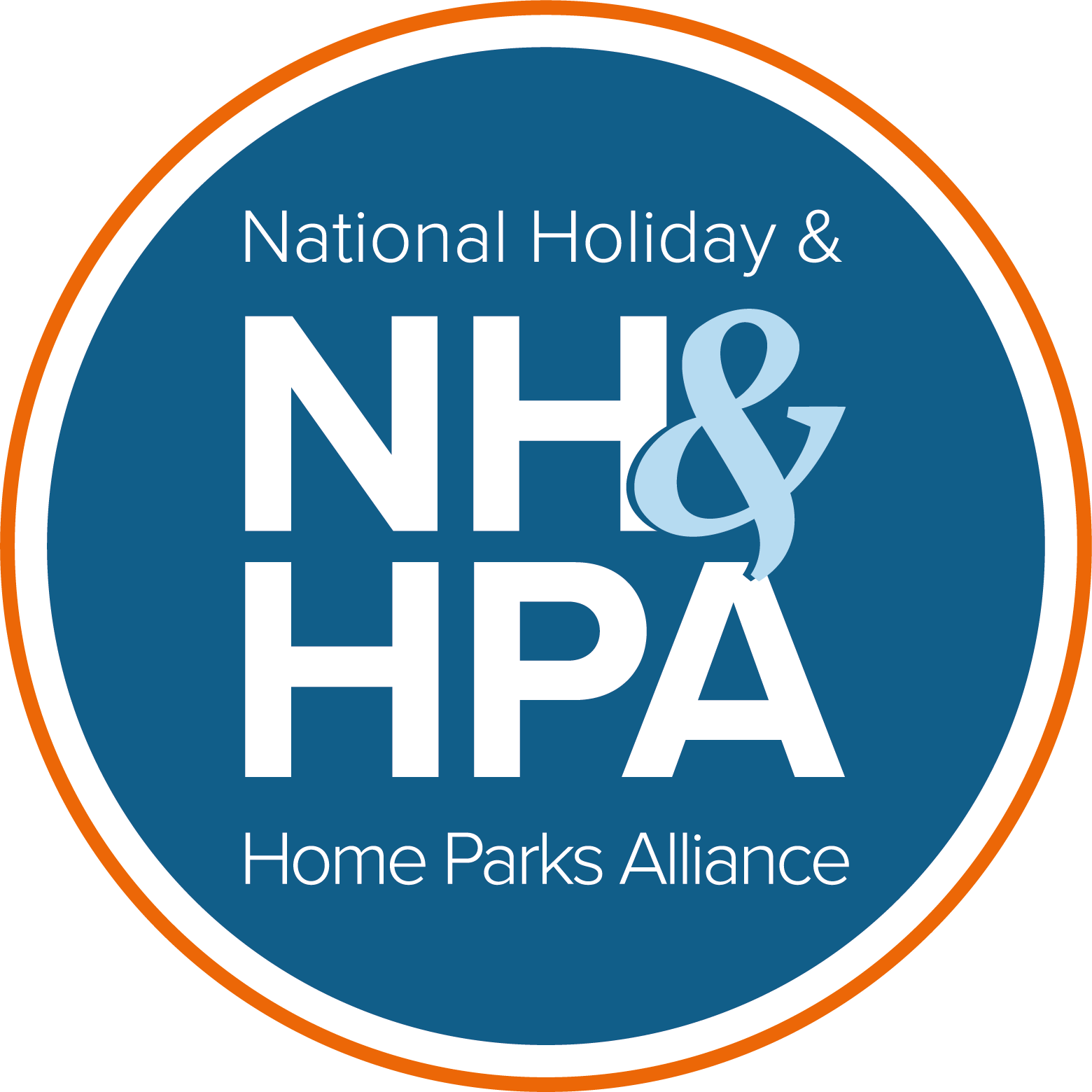COVID-19 (CORONAVIRUS)

Covid-19 Financial Update – Self Employed
March 26, 2020COVID-19 (CORONAVIRUS)

Introduction:
This fast-moving virus has now spread worldwide, and we understand your concern and worry.
In this unsettling situation, it’s encouraging to see people pulling together and to witness the resilience displayed by individuals, businesses and governments.
We’re all very much in this together and NH&HPA is operating within official guidelines to support Park Owners. We will continue to play a key role in assessing the financial implications and risks of the Covid-19, helping to guide Park Owners through the challenges, and playing a key role in business continuity – providing leadership in challenging circumstances.
Visit www.nhhpa.co.uk and make enquiries via the links on the home page relating to the services and information you require.
Your wellbeing:
This virus is a very human issue and it is important that you support yourself and others in your team.
It is important that you look after you. You may not be able to change events around you, but you can control how you respond to them. Prioritise one thing every day which is just for you. 30 minutes of playing the guitar, going for a walk (if that option is available to you) or playing with the dog will give your logical brain a well-earned rest. Equally important is good sleep. Make it a priority along with healthy eating to maintain your energy levels.
Stay safe and whilst at times you may feel lonely – you are not alone.
Forward thinking:
Despite cases continuing to rise and markets sending people and companies in a panic, it’s not too late for businesses to plan and establish a damage limitation process to mitigate or at least minimise any damage.
One of the most important things you can do is communicate with your employees. Many are likely to be concerned about their health and how they can continue working as more things get shut down. Careful and effective communication of what you are doing, what the plan is and how this will be achieved is vital to care for your employees.
Insurance Cover:
Insurance coverage is now vitally important and no doubt the specialist provider you are with will have clauses including aspects such as insurance coverage for business closures or trip cancellations. Now is the time to refer to the insurance ‘terms and conditions’ and check your level of cover.
Business rates relief:
The Chancellor announced a raft of new changes to business rates relief designed to support businesses dealing with hardship and disruption as a result of covid-19. These changes come alongside recent announcements for further support in devolved UK authorities. Those claiming Small Business Rate Relief (SBBR) may now be eligible for a £25,000 grant, raised from £3000 at the Budget last week. Recently announced changes also include increased business rates relief for retail, hospitality and leisure businesses in central UK and devolved authorities;
• England: All in these sectors will receive 100% retail business rates discount with existing RV threshold removed
• Wales: All in these sectors with RV between £51,000-£100,000 in Wales will receive 100% discount with new grant funds available for SMEs
• Scotland: All in these sectors with RV of less than 69,000 will receive a 75% discount
Employment costs:
Legislation will be enacted to allow small-and medium-sized businesses and employers to reclaim Statutory Sick Pay (SSP) paid for sickness absence due to COVID-19. The eligibility criteria for the scheme will be as follows:
• The refund will cover up to 2 weeks’ SSP per eligible employee who has been off work because of COVID-19
• Employers with fewer than 250 employees (to be determined with reference to number employed as of 28 February 2020) will be eligible Employers will be able to reclaim expenditure for any employee who has claimed SSP (according to the new eligibility criteria) as a result of COVID-19
• Employers should maintain records of staff absences, but employees will not need to provide a GP fit note
• Eligible period for the scheme will commence the day after the regulations on the extension of Statutory Sick Pay to self-isolators comes into force
• The government will work with employers over the coming months to set up the repayment mechanism for employers as soon as possible (possibly via the RTI system). Existing systems are not designed to facilitate employer refunds for SSP
Employment allowance to increase by £1000
The Chancellor announced an increase in the Employment Allowance from £3,000 to £4,000 to protect small businesses from the rise in the minimum wage. From next month companies will not have to pay Employer National Insurance Contributions on the first £4,000 of their annual bill.
Changes had already been announced that the Allowance is only available where from 6 April the Class 1 National Insurance bill of the business or charity was below £100,000 in the previous tax year.
You cannot claim the Employment Allowance from April 2020 if:
• you’re the director and the only employee paid above the secondary threshold
• you employ someone for personal, household or domestic work (like a nanny or gardener) – unless they’re a care or support worker
• you’re a public body or business doing more than half your work in the public sector (such as local councils and NHS services) – unless you’re a charity
• you’re a service company working under ‘IR35 rules’ and your only income is the earnings of the intermediary (such as your personal service company, limited company or partnership)
• Class 1 National Insurance contributions (NICs) liability are at or above £100,000 in the tax year before the year of claim. This includes connected companies
• if the business exceeds the de minimis state aid threshold.
Finance and Banking:
Look at what short term financing could be available to keep the business going through this time. Things like bank overdraft, credit card merchant facilities, company credit card, unsecured loans from 6 months to 60 months, secured lending, refinance of equipment and vehicles right the way through to asking friends or family. Revisit your cash runway and consider what would happen to your cashflow if you had a few impacted months. You may also wish to refer to www.nhhpa.co.uk and request assistance via the Banking and Loan Finance section and evaluate accurately how long you can trade on current reserves.

You may also find the following web page useful (copy and paste the following into your browser):
HMRC & Government related support:
We are in a very fast-paced situation and, like the measures the government has introduced to stop the spread of the virus, the measures to support businesses may also change. HMRC have a Time To Pay scheme which allows payments to be spread over a longer period of time. Contact HMRC on their Coronavirus helpline 0800 105 9559. The helpline is open from Monday to Friday 8am to 8pm, and Saturday 8am to 4pm (excluding bank holidays). Contact www.nhhpa.co.uk for details about Coronavirus Business interruption loans which allows 80% of the loan is guaranteed by the government.
Statutory sick pay relief scheme allows a reclaim of 14 days of sick pay per employee (copy and paste the following into your browser):
Cash flow projection:
If you do not do this already, prepare a Cashflow projecting your anticipated Cashflow in detail over the next 8 weeks. Roll this forward each week so you are always looking ahead 8 weeks. If you are unsure how to do this or want one of us to sense-check your figures, please contact us at www.nhhpa.co.uk via our accountancy section on the home page. You may also wish to obtain Quick-books online which you can do via NH&HPA taking advantage of large discounts.
Supplier communication:
Communication with your suppliers is essential. Reach out to your suppliers and customers the moment you recognise that ‘normal’ payment terms are drifting. Do this by phone if possible and avoid non-payments without prior discussion with your supplier, loan provider or relevant authority as this can cause a highly damaging outcome to the business in the short and long term. Typically, we might suggest payment of all new debt on invoice and clear any old balance by way of agreed payment schedule.
Employment Law – What is the priority for employers?
The priority for most employers is going to be retaining staff if they can. The key message is talk to your workforce and below a few areas to consider which should be read in the light of the following;
1. The government intends to put a full package of support in place to enable businesses to retain staff, and that will be the goal. Therefore, it is to be hoped that the suggestions given below will be unnecessary.
2. Insurance needs to be fully investigated by all employers – the government has stated that it considers that the current statements made by the government are sufficient to bring interruption to business policies into effect and require insurance companies to make good on those policies
3. In discussions with staff it is probably the most sensible course of action to be as open and transparent as possible about the situation the business is in, the measures you are taking to enable it to survive and what you are asking of them. You will remind them that the survival of the business is in their interests, and that your objective is to work together with them to achieve that, but that you fully understand the situation is going to be very difficult for them all
4. This situation is completely unprecedented, therefore none of us has any idea what approach any tribunal would take, but most employees must realise that there is little point in a tribunal claim if there is no employer to sue, so it would make sense for employees to take a pragmatic view. What is the law? There is some very brief guidance on the government website
See https://www.gov.uk/lay-offs-short-timeworking
5. The general principle for employees (not for casuals or agency workers) is that an employer cannot reduce unilaterally an employee’s pay and/ or hours without their consent unless the employer has provided for unpaid short time working in the contract of employment (which is relatively rare). If employees are sent home without pay they are entitled to a guarantee payment, details of which are on the link above, and as stated above may well have a claim for back pay.
6 Thus, if an employer unilaterally imposes a pay cut on an employee that constitutes a breach of contract which would entitle an employee to leave and claim constructive dismissal (less likely in the current circumstances) or remain with the employer under protest and make a claim for back wages on the basis of unlawful deduction.
7. Saving cost by making redundancies is always a possibility. There is no doubt that the many businesses suffering a catastrophic reduction in demand would have grounds for this, and in an emergency situation it is generally accepted that the period of consultation may be very short. Any consultation, however short, would explore other possibilities with the affected employees, such as unpaid leave. Of course, redundancy is itself an expense many employers will want to avoid right now, and they will need a workforce going forward assuming the business survives. 8. It is possible that by holding frank and open discussions with employees, either within a redundancy consultation or as a standalone meeting, that the employer may be able to persuade employees to accept a reduction in pay and/or hours, which would be likely to prevent them having any later claim for deductions from wages.
9. Any compromise you might reach with them perhaps to reduce hours/pay would contain the proviso that if you do achieve some sort of compensation from government, you will do your best to make up any money that the employees have lost out, or at least restore the previous status quo as quickly as you possibly can.
10. Many employers are closing and asking employees to work from home. Many of those employers will not have a clause in the contract allowing this, or any working from home policy. Although there is no way of knowing what approach any tribunal might take to this, the likelihood is that tribunals would consider the situation so unusual that employees should adopt a flexible approach to doing this. It is thought that the key will be good communication and open discussions again; what is the employer expecting or hoping for and what are the issues for employees with working from home, if any? How can any problems be addressed, what sort of equipment is needed and can it be supplied? It is likely that both parties would be expected to act reasonably and accommodate the needs of the business and of the employee as best they can.
If possible, it would be advisable for employers and employees to wait to see how far the government is able to get the package of support up and running and how effective it is before taking any precipitate action. As far as possible no firm decisions should be taken without assessing how far the new grants, loans and other support will allow the businesses to survive and retain staff. You can find employment law factsheets at
Grants to support businesses experiencing increases in costs or financial disruptions:
The government will provide an additional £2.2 billion funding for local authorities to support small businesses that already pay little or no Business Rates because of Small Business Rate Relief (SBBR). This will provide a one-off grant of £10,000 (previously announced at £3,000 in the budget) to around 700,000 business currently eligible for SBRR or Rural Rate Relief, to help meet their ongoing business costs. For a property with a rateable value of £15,000, this represents 2/3rd of their rateable value, or comparable to roughly 8 months of rent.
This grant only applies to businesses in England as business rates in Scotland, Wales and Northern Ireland are set by their devolved administrations.
In response to the Prime Minister’s previous announcement to limit social contact in pubs and restaurants, the Chancellor has extended 100% business rates relief for 12 months for all businesses within the retail, leisure and hospitality sectors (this includes hotels, restaurants and coffee bars), regardless of size.
In addition, companies with a rateable value of less than £51,000 will be eligible for a cash grant of up to £25,000. Further details are expected within a few days.
The discount that pubs receive on their business rates will increase from £1,000 to £5,000, as long as their rateable value is below £100,000 in England.
In Scotland, an £80 million fund to provide grants of at least £3,000 to small businesses in sectors facing the worst economic impact of COVID-19 has been announced by Scottish government.
Scottish Enterprise has launched a business helpline to provide businesses across Scotland with information and support on COVID-19. The business helpline number is 0300 303 0660 and will be open Monday to Friday, between 8.30am to 5.30pm.
• The £80m grant fund is part of a £320m package of measures announced to help small businesses weather the coronavirus crisis.
• 75% rates relief for retail, hospitality and leisure sectors with a rateable value of less than £69,000 from 1 April 2020
• an £80 million fund to provide grants of at least £3,000 to small businesses in sectors facing the worst economic impact of COVID-19
• 1.6% rates relief for all properties across Scotland, effectively reversing the planned below inflation uplift in the poundage from 1 April 2020
• Fixed rates relief of up to £5,000 for all pubs with a rateable value of less than £100,000 from 1 April 2020
Welsh Government Support:
The Welsh Government today announced a package of support worth more than £200m for small businesses to help them during the coronavirus outbreak:
• Retail, leisure and hospitality businesses with a rateable value of £51,000 or less will receive 100% business rate relief and pubs with a rateable value of between £51,000 and £100,000 will receive a £5,000 reduction on their bill.
• A further £100m will be available for a new grant scheme for small businesses Further details on this new grant scheme will be confirmed as soon as possible.
For more details, please see https://gov.wales/emergency-support-businesses-hit-coronavirus
To conclude:
The main thing is to keep your head up and not lose focus or indeed faith. This is a war and as a nation we may suffer hardship, sadness, personal loss and distress. But we will emerge and as a society we will be reborn and redefined having been sculpted by the events that are unfolding.
· Stay calm
· Stay in charge of your ship
· Stay in contact with staff, talk to them, they are worried too
· Stay alert, watch for updates and information.
· Stay on top of your financial collection process.
· Stay in touch with your professional circle, accountants, bank and www.nhhpa.co.uk
· Stay in touch with us, email us, we are here to help you plan and put structures in place that will help sustain your business through this rather uncertain period.
Stay safe.
Kindest regards to you.
David Prince FCCA
Director
